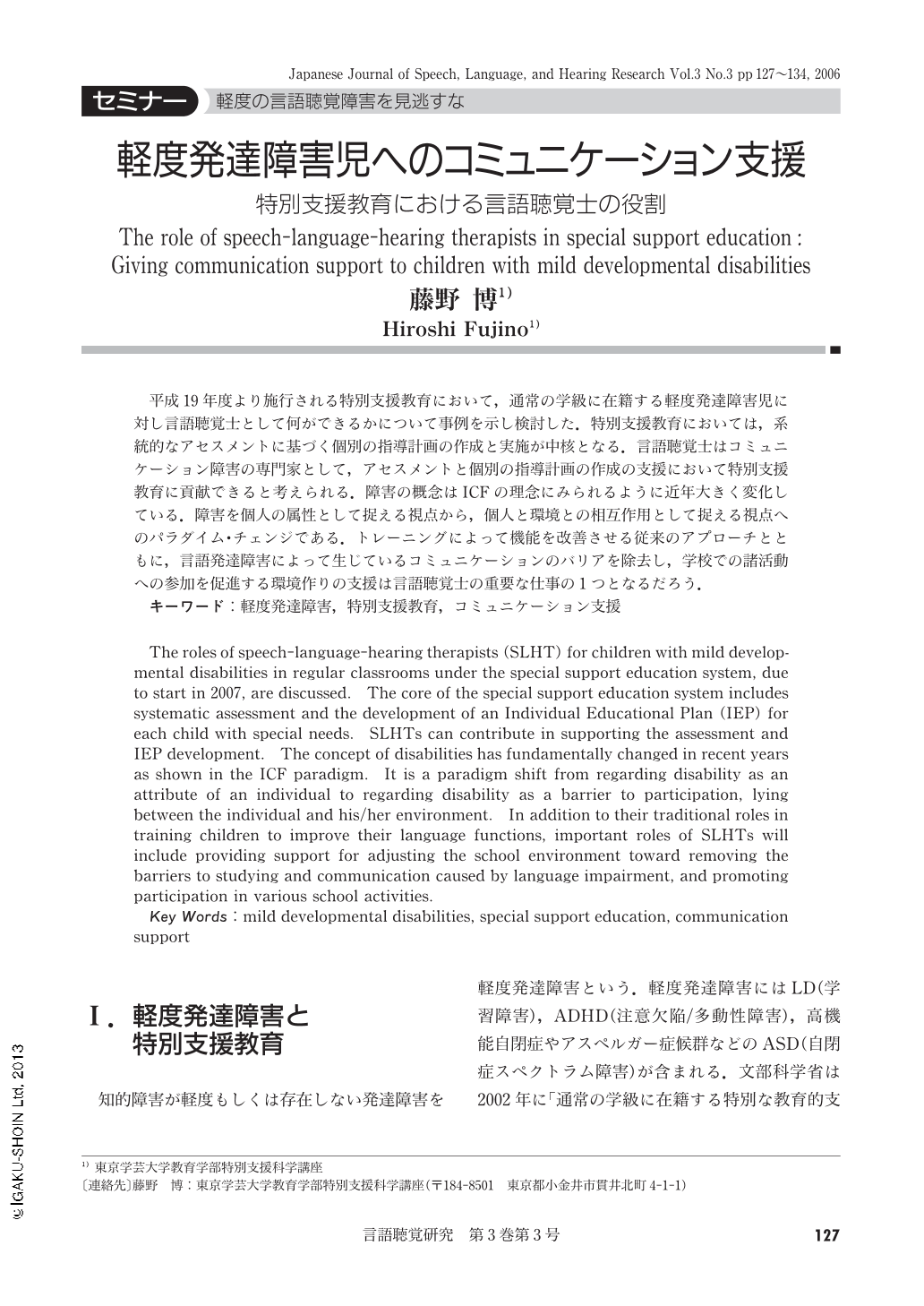Japanese
English
- 有料閲覧
- Abstract 文献概要
- 1ページ目 Look Inside
- 参考文献 Reference
- サイト内被引用 Cited by
平成19年度より施行される特別支援教育において,通常の学級に在籍する軽度発達障害児に対し言語聴覚士として何ができるかについて事例を示し検討した.特別支援教育においては,系統的なアセスメントに基づく個別の指導計画の作成と実施が中核となる.言語聴覚士はコミュニケーション障害の専門家として,アセスメントと個別の指導計画の作成の支援において特別支援教育に貢献できると考えられる.障害の概念はICFの理念にみられるように近年大きく変化している.障害を個人の属性として捉える視点から,個人と環境との相互作用として捉える視点へのパラダイム・チェンジである.トレーニングによって機能を改善させる従来のアプローチとともに,言語発達障害によって生じているコミュニケーションのバリアを除去し,学校での諸活動への参加を促進する環境作りの支援は言語聴覚士の重要な仕事の1つとなるだろう.
The roles of speech-language-hearing therapists (SLHT) for children with mild developmental disabilities in regular classrooms under the special support education system, due to start in 2007, are discussed. The core of the special support education system includes systematic assessment and the development of an Individual Educational Plan (IEP) for each child with special needs. SLHTs can contribute in supporting the assessment and IEP development. The concept of disabilities has fundamentally changed in recent years as shown in the ICF paradigm. It is a paradigm shift from regarding disability as an attribute of an individual to regarding disability as a barrier to participation, lying between the individual and his/her environment. In addition to their traditional roles in training children to improve their language functions, important roles of SLHTs will include providing support for adjusting the school environment toward removing the barriers to studying and communication caused by language impairment, and promoting participation in various school activities.

Copyright © 2006, Japanese Association of Speech-Language-Hearing Therapists. All rights reserved.


